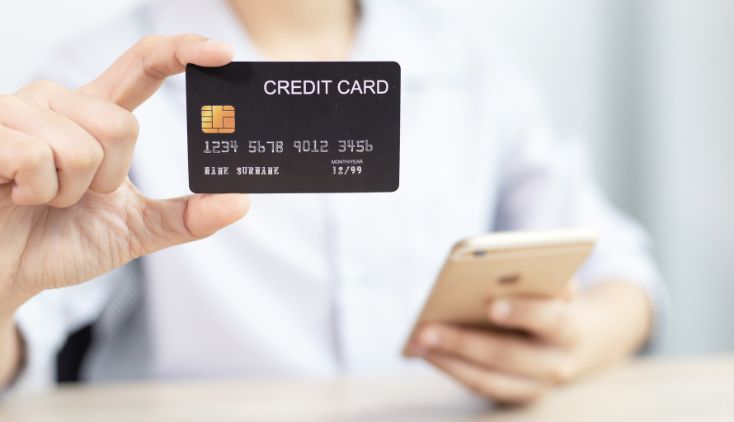Unlocking Opportunities
Credit scores play a crucial role in financial health, affecting access to loans, mortgages and credit cards. For those with poor credit in the United Kingdom, obtaining a credit card can be challenging, but it’s not impossible. A range of credit cards designed specifically for such individuals are available on the market. This article will explore these credit card options, outline ways to improve your credit score and highlight key features to look for when selecting a credit card suited to your needs.
Types of Credit Cards Available for People with Poor Credit
Many people believe that there are no credit cards available for those with poor credit, but there are some options on the market. Here are some types of cards available for those with bad credit.
1. Secured Credit Cards
These require a security deposit that typically serves as the credit limit. This deposit minimizes the risk to the issuer, making it easier to get approved. In the United Kingdom, secured credit cards are less common, but some financial institutions may offer them.
2. Credit Builder Cards
Designed specifically to help individuals build or rebuild their credit profiles, these cards usually come with a low credit limit and a higher interest rate. By using the card responsibly and making payments on time, cardholders can progressively improve their credit scores.
3. Prepaid Cards
While not a form of credit card in the traditional sense, prepaid cards can be a practical alternative. Users load the card with funds and can only spend what's available on the card. They do not contribute directly to improving your credit score but can help manage spending and avoid debt accumulation.
4. Retail Credit Cards
Some retail companies offer credit accounts with a small credit limit which can be used to purchase items from their inventory. These come with high interest rates and are intended to improve your credit score as you buy and repay on time.
5. Subprime Credit Cards
Targeting those with poor credit histories, these cards tend to have lower credit limits and higher fees and interest rates. Although costly, they can be useful in rebuilding credit if managed wisely.
Improving Your Credit Score
Here are some tips on how to improve your credit score.
1. Register on the Electoral Roll
Registering to vote is a simple step that can have a significant impact on your credit score. Lenders use this information to confirm your identity and address.
2. Use Credit Builder Products Wisely
Products like credit builder cards, when used responsibly, can show lenders that you're capable of handling credit. Ensure that you make all payments on time and stay within your credit limits.
3. Check Your Credit Report
Regularly review your credit report to ensure accuracy. Dispute any errors you find with the credit reference agencies.
4. Pay Bills On Time
Late or missed payments can harm your credit score. Set up direct debits or reminders to ensure timely payments.
5. Manage Debt
Aim to keep credit card balances low and try to pay off debts rather than moving them around. Avoid using all of your available credit.
6. Limit Credit Applications
Too many hard searches in a short time frame can lower your credit score. Only apply for necessary credit and space out your applications.
7. Build a Long-Term Credit History
Having a long history of good credit management can reflect positively on your credit score. This means keeping accounts open and active for an extended period, provided they are not costing you in fees.
What to Look for in a Credit Card for Poor Credit
Here are some things to consider when looking for a credit card.
1. Acceptance Criteria
Look for cards that are more likely to accept applicants with poor credit. Always use eligibility checkers that perform a soft search to avoid impacting your credit score when assessing your chances.
2. Fees and Charges
Examine the fee structure carefully. Some cards for poor credit have an annual fee or setup charge in addition to high interest rates.
3. APR (Annual Percentage Rate)
While the APR for poor credit cards tends to be higher, shop around for the best rate available to you. The lower the APR, the less interest you’ll pay on unpaid balances.
4. Credit Limit
Assess the initial credit limit and the potential for it to increase after demonstrating responsible usage and payment history.
5. Reporting to Credit Reference Agencies
Ensure that the card issuer reports to all three major UK credit reference agencies. This is critical for building or improving your credit score.
6. Additional Benefits
Some cards might offer additional benefits, such as cashback, rewards or free credit score access, which can be a bonus when used judiciously.
Rebuilding Your Finances
If you’re a UK resident with a poor credit history, obtaining a credit card is still within reach. It's essential to choose the right type of card and use it responsibly to improve your credit score over time. Consider the acceptance criteria, fees, APR, credit limit, reporting practices and any additional benefits when selecting a card. By managing your finances wisely and making informed decisions, a credit card can be a valuable tool in not only accessing credit but also in restoring your financial reputation even with a poor credit background.
